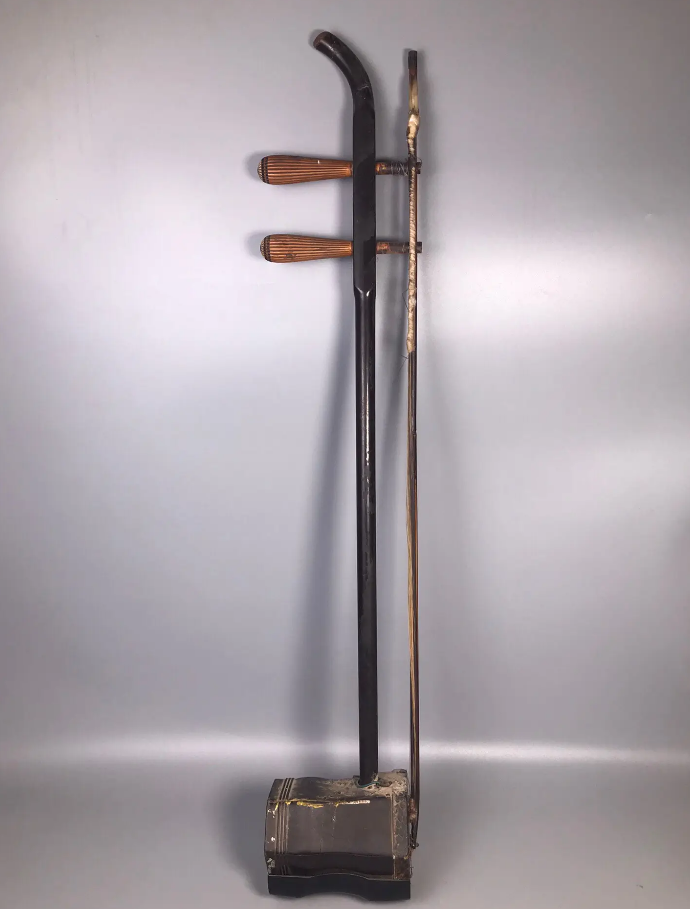Qi Dezhen and Erhu live happily together in their rare years
Erhu is one of the main bowed and stringed musical instruments in the Chinese nation, and it is also Qi Dezhen's lifelong "friend".
Qi Dezhen, 72 years old this year, became attached to Erhu when he was a child. "When I was a kid, my neighbor's brother would play the erhu. Every time I listened to it, I found the erhu's tone to be very pleasant. It was like a human singing, and I wanted to learn it." He tried every means to impress his brother, such as helping his brother's house with odd jobs. Slowly, the neighbor's elder brother accepted him and began to teach Qi Dezhen how to pull the erhu. At that time, Qi Dezhen's family was poor, and although the quality of the erhu his father gave him was poor, it did not affect Qi Dezhen's determination to practice. When he was young, he practiced Sanjiu in winter and Sanfu in summer. He was not afraid of hardships and made rapid progress. Later, after being promoted to Kaifeng Iron Middle School, the music teacher found that Qi Dezhen who could play "Horse Racing" was a "good seedling", so he gave Qi Dezhen an erhu, hoping that he would study hard. The teacher's kindness moved Qi Dezhen very much, and she was even more determined to learn Erhu well. At the end of 1968, in response to the call of the state, Qi Dezhen and more than a dozen classmates in the class went to the Duhuzhuang production team of Cuilou Brigade of Shidao Commune, Dengfeng County, Henan Province to do farming. Although the labor was hard, he was still grateful, and always took the Erhu that his teacher gave him with him. Whenever night falls, everyone sings and laughs in the field, and Qi Dezhen plays the erhu accompaniment for everyone, very happy. "I remember one night, the moon was very bright, and a few of us were sitting on the soil slope beside the field. I played the erhu, and the classmates sang, which made us all cry." Qi Dezhen recalled that the song sung that night was "Listen" Mom talks about the past, everyone is very emotional. In the countryside, sometimes adults and children in the village also go to listen to Qi Dezhen La Erhu and sing along with him. Everyone has a great time. Qi Dezhen clearly remembers that at that time, there was a 10-year-old child in the village who looked very smart and wanted to learn erhu with Qi Dezhen, but the child's family was poor and could not afford the erhu. Qi Dezhen saw him as a "good seedling", and when he returned to the city in 1971, he left the erhu that his teacher gave him to the child, and told him to study hard. That kid later went to college and studied art.

After Qi Dezhen returned to the city, in order to make a living, he hardly had time to play the erhu, and even slowly forgot about it. After retiring, he saw many elderly people singing and playing erhu by Longting Lake, very happy. "At that time, I realized that I also learned to play the erhu when I was young. I haven't played the erhu for 37 years, and I can't do anything. So, I found an erhu and practiced at home for a whole year before I dared to come out with others. Play." Qi Dezhen said with a smile, in 2013, a friend introduced Qi Dezhen to perform for tourists in the second phase of Kaifeng Water System, which improved her skills. Later, when he was playing erhu in the park, he met many friends who liked music, and formed his own band with his friends to start a new musical journey.
"Now, how good the party's policy is, many leisure places have been built for our elderly, such as the veteran cadre activity center, the city group art center, the community elderly activity room, etc. There is a song called "Our Days Sing" I live with Erhu every day, and I feel very happy in life." Qi Dezhen said.
 渝公网安备 50010702504639号
渝公网安备 50010702504639号